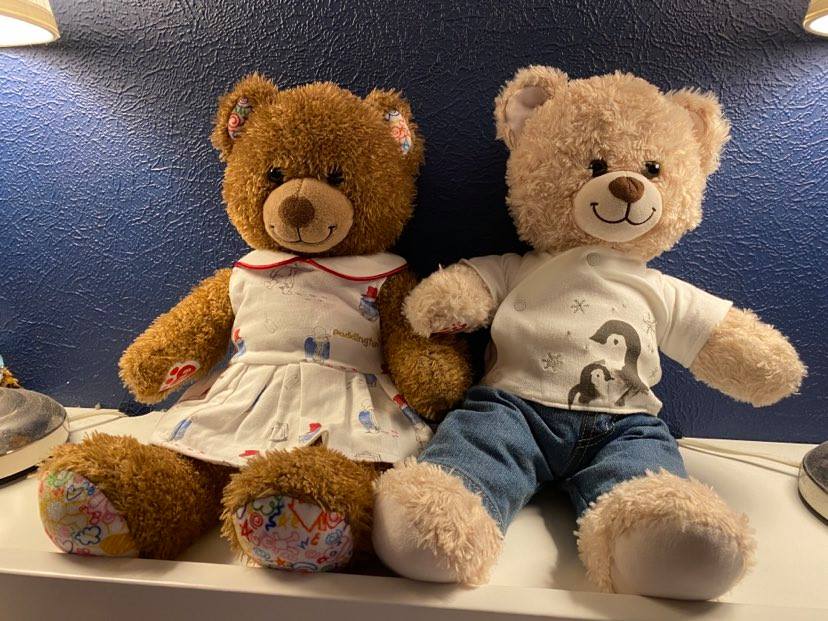Talking to Children about Miscarriage
Geoff and I had children from a previous marriage and hoped that our new pregnancy would strengthen our already blended family. We were so excited about announcing our first pregnancy to our children but had decided to wait for the 12 week scan. Due to Christmas our 12 week scan was due on New Years Day (when I would have been 13+ weeks). We were so excited and discussed how we would tell the children. Unfortunately, just days before Christmas I started bleeding. And now we had to face talking to our children about miscarriage. We decided to tell our older children that I was having a miscarriage in the hope that they could help keep the younger ones entertained whilst we were grieving. After the miscarriage and with the start of Morgan’s Wings we told the other children. There were lots of tears and hugs but I think all our children reacted as expected and Morgan along with Bee are still a big part of our lives and we talk about them often. I have included some information here on grief and children.

Not all parents will have told their children (or other children in their family) that they are expecting a baby. If you have told your child, then you may now find yourself in the unfortunate position of having to tell your child that the baby has died. If you did not tell your children you were pregnant, you may still wish to tell them of your miscarriage. Whatever you decide to do please remember that even if your children didn’t know that you were pregnant or indeed that you had a miscarriage then they still may pick up on your grief.
Children are capable of grief, although they may not understand death in the same way as adults. They may also react to the distress around them. They see death as separation from a loved one. It is important that children know that death is permanent. Young children may not understand the term miscarriage. It may be useful to tell them that the baby has died, rather than use terms such as ‘born sleeping’, ‘we lost the baby’ or ‘passed away’.
What does grief look like in children?
Grief will be different for all children. Children with high self – esteem will generally be less affected by grief. Grief can often be seen in children’s behaviour.
Depending on their age and/or understanding, children may seem unsettled or fussy, they may show signs of irritability, they may become easily distressed, startled, clingy or nervous. Night-walking and nightmares may also be seen as well as bedwetting and feeding difficulties. They may be scared to go to sleep in case they too die. They may exaggerate their normal behaviours. Children may struggle to control their reactions, they may under react or cry and over react. They may encounter difficulties in school and with friends – it may be worth speaking to your child’s school or nursery so that they can help support your child in their setting. Older children may react to death as a younger child or as an adult would, feeling sadness, loss, yearning and heartache. They may also struggle to control their reactions and may partake in risk seeking behaviour.

Some children may initially appear unaffected after hearing the news of a miscarriage but are likely to think about it during quieter times, such as bedtimes. They may believe that the miscarriage occurred as a response to something they have said or done – how many times has a child cried as a response to hearing that mummy was having a boy/ girl, when they wanted the opposite? Children may ask lots of questions over and over again. They will often fill in gaps about what happened if they do not know the whole truth and this fantasy can be worse than the reality. Older children may be able to empathise with others but will not always show their feelings. They can become preoccupied with the unfairness of it and can ask questions such as “Why my family?”. It is important to be as honest and patient as you can without worrying them more.
I felt really sad and I didn’t know what to do. My mum talked about it with us really nicely and that helped.
Dewi – aged 11
Adolescents have a good understanding of death and the irreversibility of it. They can be empathetic but may be reluctant to talk about their own feelings. Girls are more likely to reach out to peers for support than boys. They may feel a sense of injustice and become preoccupied with it, trying to find a meaning behind the death. They may focus on the worst possible case and may feel responsible for the death or may feel that they should have done things differently.
How can I help my children after my miscarriage?
In the aftermath of miscarriage, talking to children about miscarriage and encouraging them to open up about their feelings can be helpful for you and them. You may find that young children do not always have the vocabulary to tell you how they are feeling. If you find it hard to talk to your children about your miscarriage it may be easier to ask a trusted relative or friend. It is important to be as honest as you can without worrying them more. Stick to routines, children feel safest when they know what to expect. If a change of routine is needed it is vital that this is discussed with the child ahead of time (where practical) and that they know how long it will last. It is also important to allow the child to see you grieve unless you are using unhelpful coping mechanisms.
I was shocked and didn’t know how to feel. It helped to talk, when my mum and dad could talk freely and answer my questions it became easier.
Emily – aged 15
What things can help my child process grief following a miscarriage?
It can be useful to include children in creating a memory box or making cards etc. Involve your child in commemorating your baby, this could be done annually. There are books available that are targeted at children which can be helpful. You can also encourage your child to write a letter or draw a picture for their sibling. We were in the position that we had both our babies cremated and have had their ashes put inside a build-a-bear and so our children can come and give Morgan and Bee a hug whenever they are sad. Even if it’s not possible to put ashes in a bear it can be a good idea to buy a cuddly toy that represents your baby so that you and your child can hug them when they need to.

Post miscarriage
If a child has witnessed the miscarriage, the feelings and memories of the trauma can lead them to have flashbacks. These can be frightening and are difficult to control. The child can be left feeling nervous and the flight or fight response will kick in. Children may not understand what is happening and may find it difficult to describe how they are feeling. The flight or fight response raises adrenalin which may in turn bring on symptoms such as elevated heart rate (palpitations), headaches, abdominal pains and lethargy.
For more information have a look at our leaflets written specifically for children aged 0-5, Primary aged children, and adolescents. If you or your child find yourself struggling with the emotions following a miscarriage, there is help available. Morgan’s Wings offer a free (text message charges may be applicable) talk support service for adults or visit Beam who offer therapy following grief.
You can also seek support for you and your child from other services such as your GP or Cruse Bereavement Care
Further help:
Coping with the Death of a Sibling (cruse.org.uk)
Winston’s Wish – giving hope to grieving children (winstonswish.org)
Commemorating your baby after miscarriage – Miscarriage Matters (morgans-wings.co.uk)
